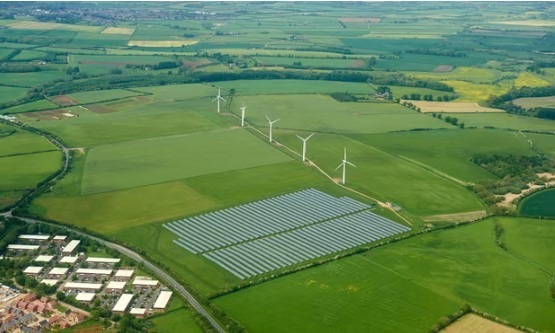
Solar and Wind Power Will Fall Short of 2030 Clean Energy Goals Without £48bn Investment
Achieving a zero-carbon electricity system by 2030 will require a significant transformation, according to Cornwall Insight, a leading UK energy analysis firm.
To decarbonize Great Britain's electricity grid by 2030, solar and wind power generation needs an additional £48bn investment, Cornwall Insight reports. The government's ambitious target requires doubling onshore wind, tripling solar power, and quadrupling offshore wind capacity.
Cornwall Insight, recognized as a top energy forecaster, emphasized that meeting this target will demand a major shift to bridge the renewable investment gap. According to their projections, solar and wind will provide only 44% of Great Britain's electricity by 2030, far short of the 67% required to eliminate fossil fuels from the power generation mix. Gas is expected to account for 19% of electricity generation by 2030, surpassing solar, onshore wind, or offshore wind.
The analyst firm stated that an extra £48bn is necessary on top of the £18bn planned for scheduled energy infrastructure projects to achieve the government's renewable energy goals. However, Cornwall Insight cautioned that this transformation faces "substantial challenges" due to funding limitations, supply chain issues, port capacity constraints, and the need for more connections to the National Grid.
"Attracting that investment is going to be critical to delivery," Cornwall Insight noted, suggesting that mechanisms like "contracts for difference," which provide fixed returns for investors, might be essential.
Tom Edwards, a principal modeller at Cornwall Insight, highlighted that international competition for project development and material shortages pose significant challenges beyond government control. He added that grid updates, increased storage, and numerous other policy changes are necessary to make a zero-carbon power system by 2030 a feasible goal. He acknowledged the positive steps taken by the new government, such as lifting the de facto ban on onshore wind, but stressed that much more needs to be done to realize decarbonization promises.
A government spokesperson stated: "We are taking immediate action by implementing our long-term plan to make Britain a clean energy superpower. In just one week, we have removed barriers to onshore wind farms, approved more solar power than installed in the past year, and set out plans for a solar rooftop revolution. Investing in clean power is essential to guarantee our energy security and protect bill payers permanently, which is why we aim to double onshore wind, triple solar, and quadruple offshore wind by 2030."
Labour's main renewable energy policy involves creating the state-owned company GB Energy to invest in wind, solar, and other projects. The government also plans to expedite the planning process for new power projects.
Last week, the Climate Change Committee, the government's climate watchdog, warned that current policies put in place by Prime Minister Rishi Sunak's administration would only achieve about one-third of the emissions cuts required to meet the UK's Paris Agreement target of a 68% carbon reduction by 2030.